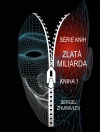Praise for the First Edition :
`This is the Second Edition of a book first published in 1992 as part of the Key Figures in Counselling and Psychotherapy series edited by Windy Dryden. It has proved a successful introduction to the life and work of Sigmund Freud: in this present edition Michael Jacobs takes the opportunity of the new translation of Freud now appearing to offer more suggestions about reading, particularly the papers of technique available through Virago′s 2001 publication of the Standard Edition′ – The Journal of Analytical Psychology
In refreshing contrast to most other books on Sigmund Freud, this is a highly accessible account of his life and ideas, which focuses on the relevance of Freud′s work for contemporary approaches to counselling and psychotherapy.
The book provides an overview which is based firmly on Freud′s own writings, but which goes far beyond a recapitulation of the existing literature, to offer fresh insights and some surprises, both about Freud the man and his theories. Written by bestselling author, Michael Jacobs and now fully updated for its Second Edition , Sigmund Freud presents and responds to the criticisms that Freud′s work attracted, and charts his continuing influence in the 21st century.
This is highly recommended reading for those training in counselling and psychotherapy as well as those studying Freud in other contexts.
Michael Jacobs is a retired lecturer in Counselling Studies and bestselling author whose publications include (in the same series), D W Winicott (SAGE, 1995) and Psychodynamic Counselling in Action, Second Edition (SAGE, 1999).
Innehållsförteckning
The Life of Sigmund Freud
Freud′s Major Theoretical Contributions
Freud′s Major Contributions to Practice
Criticisms and Rebuttals
Freud′s Influence on Therapy and the Wider World
Om författaren
Michael Jacobs was for many years director of the counselling and psychotherapy programme at the University of Leicester. He is one of the pioneers of psychodynamic counselling and therapy in Britain. He has written and edited over sixty books including Sigmund Freud (SAGE, 2nd edition, 2003) and D.W. Winnicott (SAGE, 1995). He has been a visiting professor at Leeds and Bournemouth Universities and has a Ph.D, his thesis being on psychoanalytic criticism of Shakespeare’s A Midsummer Night’s Dream. He has retired from practice as a therapist and supervisor, and as a teacher and trainer, but maintains a keen interest in the development of psychodynamic thinking and practice.












